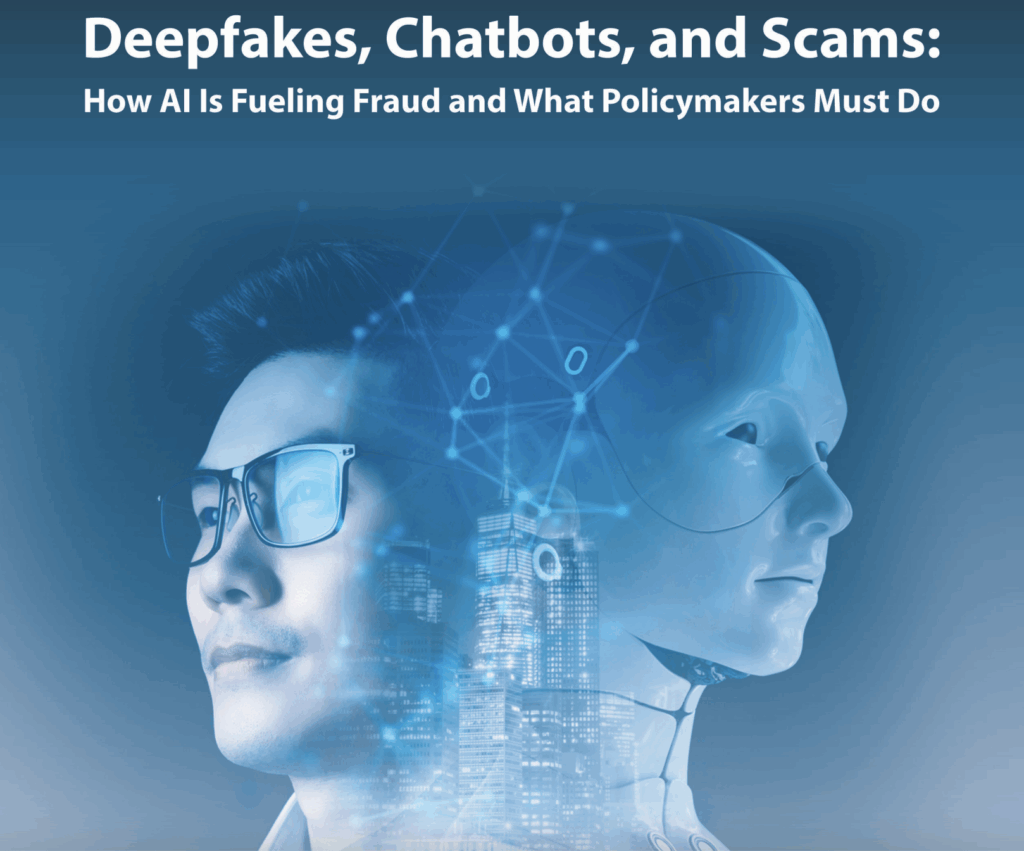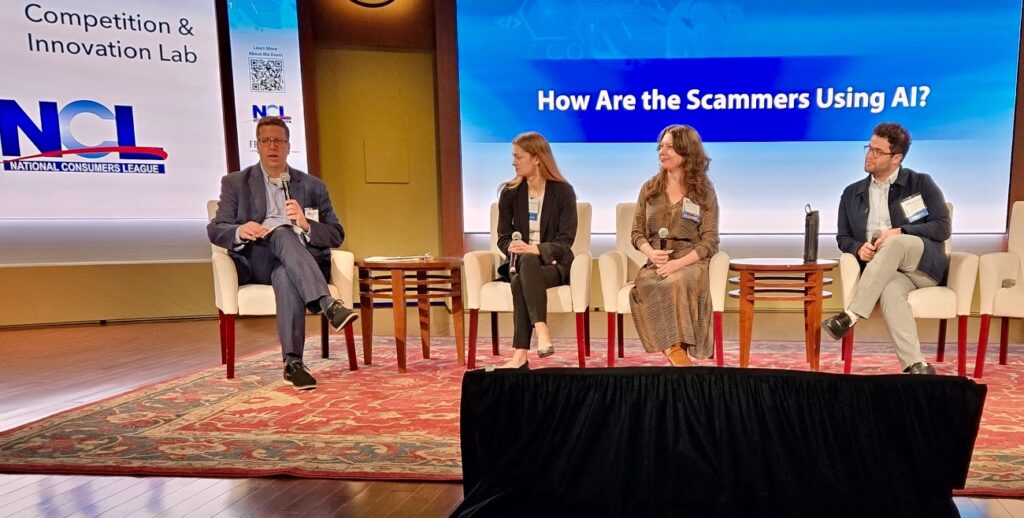Kailua residents Jill Butterbaugh and her husband Nik were visiting a farmers market on the Big Island last month when her cell phone rang. She let the call go to voicemail. But when she finally picked up the message, she got some troubling news.
“Aloha Jill,” said a friendly sounding man who said his name was Michael and that he worked for Hawaiian Electric Co.
He referred to her home address and told her that her electric meter was being replaced and that her home utilities would be disconnected unless she called him back quickly at a phone number he provided. The work order to disconnect the power had already been placed, he said.
He thanked her for being part of what he called the “Hawaiian Electric team” and hung up.

Ideas showcases stories, opinion and analysis about Hawaiʻi, from the state’s sharpest thinkers, to stretch our collective thinking about a problem or an issue. Email news@civilbeat.org to submit an idea or an essay.
To Jill, this sounded like an emergency. She was on vacation and away from her home. She called HECO to double-check but the company’s automated line said only that they were closed for the weekend and wouldn’t reopen till Monday.
She was on her own.
Butterbaugh had to decide what to do. If she did nothing, and the call was real, and the power was disconnected, the food in her refrigerator would spoil. But what if it wasn’t real? What if it was a scam to get her to call back, to entice her into paying money she didn’t owe?
“It made me panic a bit,” she recalled recently, reliving the chain of events and describing the anxiety she felt.
The Internet Gets More Dangerous
What happened to Butterbaugh is becoming an everyday occurrence in Hawaiʻi and all around the world, as scammers with new technological tools and easy access to consumers’ personal information are becoming ever more inventive at rooking the unwary.
Almost every month, it seems, we are forced to decide whether a text or email is true or fake, whether we should take action on it or not, and whether we will risk real damage to ourselves if we guess wrong.
Many people in Washington, D.C., are becoming increasingly worried about the proliferation of these kinds of scams. The situation is expected to get a lot worse as artificial intelligence makes it easier for criminals to gather information about people they want to victimize and help them make increasingly sophisticated approaches.
 The cover of a new report by the National Consumers League. (Screenshot/2025)
The cover of a new report by the National Consumers League. (Screenshot/2025)
Ostensibly legal companies are being created that will enable fraudsters to prey on people even more easily, particularly through voice-cloning, which allows scammers to impersonate the friends and family members of their victims.
Recent news accounts and congressional testimony have highlighted some of the terrible things coming to light, including teenagers driven to suicide through interactions with chatbots; senior citizens defrauded of their life savings through romantic deceptions; mass-scale human trafficking to enable “pig-butchering” operations in Asia where enslaved workers are forced to participate in fraudulent schemes to extract money from people living in wealthier nations.
A panel in Washington hosted by the National Consumers League, a 125-year-old nonprofit dedicated to worker rights and consumer justice, brought experts on consumer fraud, government officials and tech executives together this week to talk about efforts that are being made to combat these vexing new problems.
They also prepared a report on the issue.
Consumer Protection Is Unraveling
I attended the conference in Washington. I serve on NCL’s board of directors and played a small role in helping organize it, as I’m becoming increasingly concerned about the quickening pace of rapacious capitalism and the inability of our political system to put essential guardrails in place to protect vulnerable people who are suffering under mounting financial pressure.
Consumer protection, a mighty force back in the 1970s, has unraveled so quickly that no one expects anyone in a position of power to do anything to stop it.
Artificial intelligence, and the threat of fraud it poses, came to light during the Biden administration, but no action was taken. It is possible the Trump administration could undermine efforts to enact the stronger consumer protections that advocates believe are needed.
Cutbacks at the Consumer Financial Protection Bureau, for example, may make it harder to crack down on fraud, not easier.
“Anyone with access to the internet can use AI tools to create a highly realistic piece of synthetic media that can be used to deceive.”
Brad Smith, Microsoft
But a group of idealistic people in Washington spent a long day Wednesday earnestly discussing what could and should be done. Some members of the surviving workforce from the Consumer Financial Protection Bureau were there, about six workers from the Federal Trade Commission were in the audience or speaking and one Treasury Department official in the audience pointedly asked whether tools were being crafted that would allow federal officials to block complicit foreign banks from access to the international financial system.
Executives from Amazon, Google and CTIA (the cell phone trade group), all deeply invested in artificial intelligence initiatives, talked about the problems but issued warnings about unintended consequences of precipitate regulatory action, including the risk of losing an economic advantage against China.
Microsoft executives, however, have more fully acknowledged the risks ahead and urged some action be taken.
“We find ourselves at a moment in history when anyone with access to the internet can use AI tools to create a highly realistic piece of synthetic media that can be used to deceive: a voice clone of a family member, a deepfake image of a political candidate, or even a doctored government document,” said Microsoft’s Brad Smith in a white paper. “AI has made manipulating media significantly easier — quicker, more accessible, and requiring little skill. As swiftly as AI has become a tool, it has become a weapon.”
Among the conclusions reached by the conference participants were:
- law enforcement needs more resources to fight this new kind of crime;
- government agencies need to work together more smoothly to coordinate enforcement actions;
- economic or diplomatic pressure needs to be placed on foreign countries that are allowing criminal activities to be based in their territory;
- existing laws against abuse of phone and internet services need to be enforced more diligently.
And more specifically, state-level action is needed, especially where federal oversight is insufficient or non-existent. That means that state attorneys general should be playing a bigger role in prosecuting economic crimes against their citizens. In Hawaiʻi, that would call for action by Attorney General Anne Lopez.
We will follow up and ask state officials about their plans.
 The conference featured a panel discussion with, from left, moderator John Breyault of the National Consumers League; Grace Gedye, policy analyst for Consumer Reports; Lana Swartz, associate professor of media studies at the University of Virginia; and Ben Winters of the Consumer Federation of America. (National Consumers League photo/2025)
The conference featured a panel discussion with, from left, moderator John Breyault of the National Consumers League; Grace Gedye, policy analyst for Consumer Reports; Lana Swartz, associate professor of media studies at the University of Virginia; and Ben Winters of the Consumer Federation of America. (National Consumers League photo/2025)
Time To Make Some Noise
But in the meantime, we are mostly left on our own, as Jill Butterbaugh was last month.
As it turned out, the call was a scam. When she reached HECO on Monday, company representatives confirmed that her account was in good standing.
Utility shut-off scams are common and are “completely illegal,” said Patrick Crotty, senior counsel at the National Consumer Law Center, who I interviewed at the NCL conference. He said that scammers use property tax records to get the information they need and then typically try to induce victims to pay money via a gift card rather than through a bank, something that should always be a red flag.
 Jill Butterbaugh, a painter who lives in Kailua, was the target of an attempted scam. (Courtesy: Jill Butterbaugh)
Jill Butterbaugh, a painter who lives in Kailua, was the target of an attempted scam. (Courtesy: Jill Butterbaugh)
What Butterbaugh did next was very important. She reported what had happened to the Federal Trade Commission, the government agency charged with enforcing consumer protection laws. The agency operates the Consumer Sentinel Network, which shares its data with law enforcement partners.
I spoke to FTC officials at the conference and was assured that they monitor the reports they are receiving. They said that individuals will not be informed about what happens in their cases, but that officials have frequently taken enforcement actions based on information they have received.
Crotty, who formerly worked for the Florida attorney general, told me that state attorneys general can also access that information to take enforcement actions on their own.
Last week the FTC launched an investigation into how chatbots are interacting with children.
It is also a very good idea to contact Lopez’s office if you are a victim of such a fraud or attempted fraud.
Butterbaugh shared her experience on the Nextdoor website, in effect warning hundreds of local residents of the attempted scam. More than 70 people responded to her, some with stories of their own, including one who reported how a friend lost $2,000 in a similar utility scam.
Butterbaugh took just the right tack, officials in Washington said this week.
Consumers are going to have to get busy shouting out their stories if we want the people in power to get busy protecting us.
“Hawaiʻi’s Changing Economy” is supported by a grant from the Hawaiʻi Community Foundation as part of its work to build equity for all through the CHANGE Framework.

Sign up for our FREE morning newsletter and face each day more informed.
Sign Up
Sorry. That’s an invalid e-mail.
Thanks! We’ll send you a confirmation e-mail shortly.
